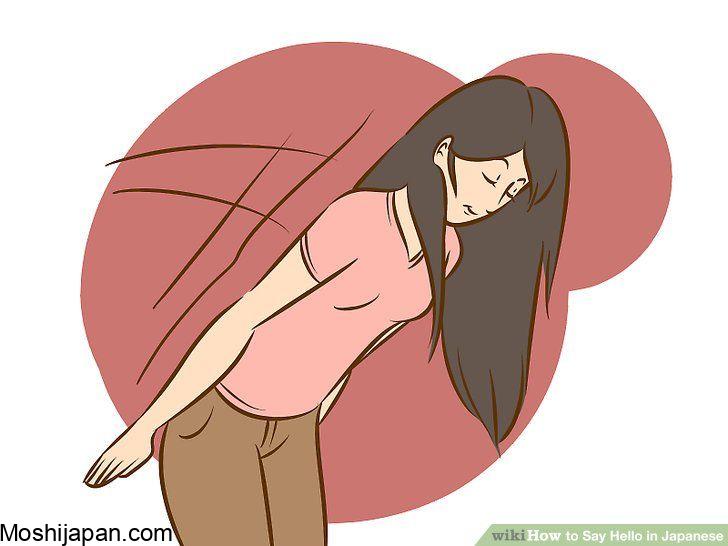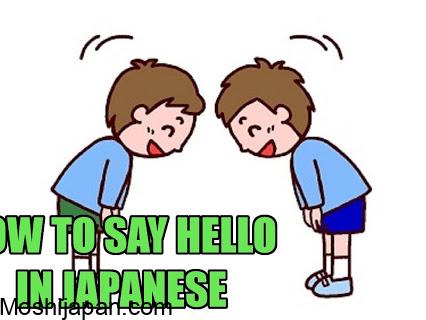Unlocking Japanese Greetings: How to Say ‘Hello’ in Japanese
When embarking on a journey to explore a new language, one of the first words we often want to master is a friendly “hello.” Japanese, with its rich culture and history, offers several unique ways to greet someone. In this guide, we’ll delve into the art of saying ‘hello’ in Japanese, allowing you to connect with native speakers and embrace the essence of this beautiful language.
Table of Contents

- Introduction to Japanese Greetings
- The Universal Greeting: こんにちは (Konnichiwa)
- Casual and Informal: こんにちは (Konnichiwa) Again
- Good Morning: おはよう (Ohayou)
- Good Evening: こんばんは (Konbanwa)
- Greetings in the Morning: お早う (Ohayou) and お早うございます (Ohayou gozaimasu)
- Polite and Respectful: おはようございます (Ohayou gozaimasu)
- How to Say ‘Hello’ on the Phone: もしもし (Moshi Moshi)
- Meeting Someone for the First Time: 初めまして (Hajimemashite)
- Formal and Business Settings: こんにちは (Konnichiwa) Revisited
- How to Say ‘Hello’ in Text Messages and Emails
- Regional Greetings: Dialects in Japan
- Beyond ‘Hello’: Japanese Etiquette
- Practice Makes Perfect: Learning Japanese Greetings
- Conclusion: Embracing the Art of Japanese Greetings
Introduction to Japanese Greetings

In Japan, greetings hold immense cultural significance. They reflect the Japanese values of politeness, respect, and harmony. Understanding how to say ‘hello’ appropriately is crucial when interacting with locals or even just navigating everyday situations.
The Universal Greeting: こんにちは (Konnichiwa)

Konnichiwa is perhaps the most commonly used Japanese greeting. It’s versatile and can be used throughout the day, roughly translating to “good day” or “hello.”
Casual and Informal: こんにちは (Konnichiwa) Again

In casual settings among friends, Konnichiwa is shortened to ‘Chiwa. It’s a friendly way to say ‘hello’ without the formality.
Good Morning: おはよう (Ohayou)

To greet someone in the morning, say Ohayou. It’s a warm and cheerful way to start the day.
Good Evening: こんばんは (Konbanwa)
As the day transitions into evening, use Konbanwa to wish someone a pleasant evening.
Greetings in the Morning: お早う (Ohayou) and お早うございます (Ohayou gozaimasu)
Ohayou and Ohayou gozaimasu both mean “good morning.” The latter is more formal and respectful.
Polite and Respectful: おはようございます (Ohayou gozaimasu)
In formal situations, especially when addressing superiors or elders, it’s appropriate to use Ohayou gozaimasu.
How to Say ‘Hello’ on the Phone: もしもし (Moshi Moshi)
When answering the phone, the common greeting is Moshi Moshi. It’s similar to saying “hello” when picking up a call.
Meeting Someone for the First Time: 初めまして (Hajimemashite)
When meeting someone for the first time, introduce yourself with Hajimemashite. It implies that it’s the beginning of your relationship.
Formal and Business Settings: こんにちは (Konnichiwa) Revisited
In business contexts, a formal Konnichiwa is still appropriate. Maintain a polite tone when interacting with colleagues and clients.
How to Say ‘Hello’ in Text Messages and Emails
In written communication, you can simply use Konnichiwa or Ohayou gozaimasu as a respectful way to start your message.
Regional Greetings: Dialects in Japan
Japan’s diverse regions offer unique greetings and dialects. Exploring these can deepen your understanding of Japanese culture.
Beyond ‘Hello’: Japanese Etiquette
Understanding Japanese etiquette is as important as knowing how to say ‘hello.’ Learn about bowing, gift-giving, and other customs.
Practice Makes Perfect: Learning Japanese Greetings
To truly master Japanese greetings, practice with native speakers or language learning apps. The more you practice, the more confident you’ll become.
Conclusion: Embracing the Art of Japanese Greetings
Saying ‘hello’ in Japanese is not just a matter of words; it’s an expression of respect and cultural understanding. Whether you’re visiting Japan or connecting with Japanese friends, these greetings will open doors and hearts. So, go ahead, practice your Japanese greetings, and start your conversations with a warm Konnichiwa!
keys words
- say hello in japanense
- learn japanense online
- say thank you in japan 2024



0 Comments